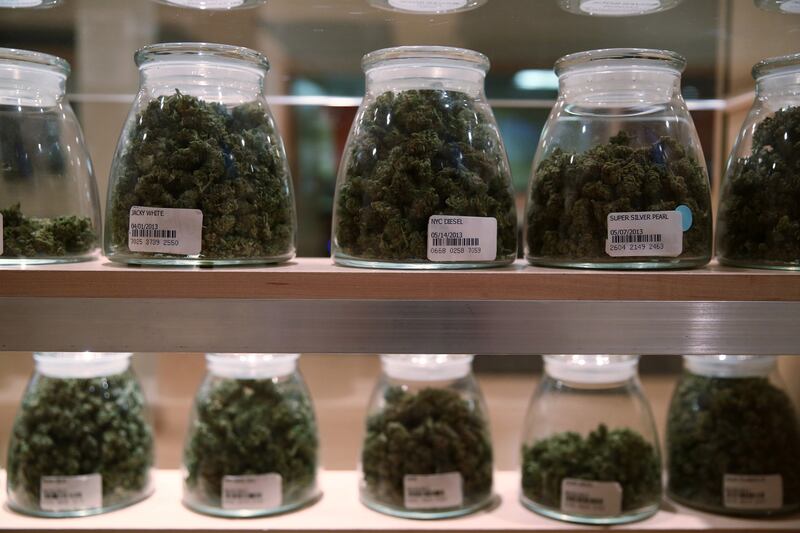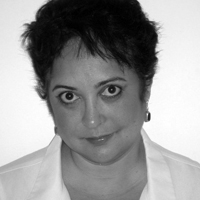I hadn’t written a pot prescription in over a year, so I was furious when I was subpoenaed again in 2010, I think. This time, a patient had been caught growing marijuana and had somehow managed to get in trouble with the law. As his physician, I was being called to support the patient’s claim that he needed weed.

When I showed up in court, the young man was contrite. He was a polite and well-groomed man, a semipro athlete who used marijuana instead of anti-inflammatories for his muscle pain. Ibuprofen bothered his stomach. Even though he had done everything right, he was arrested for growing six plants.
I’m an unlikely advocate for marijuana legalization—a graduate from a top medical school with a Stanford M.B.A. I never personally liked marijuana and for much of my career judged it harshly. But my internal-medicine practice had become totally unworkable as a mother with two young kids with severe learning disabilities. Writing pot prescriptions was a job that fit neatly into my life.
ADVERTISEMENT
The medical-marijuana clinic where I worked was an upscale alternative to the rundown pot shops that had sprung up on the Venice boardwalk. The head of the clinic could have been my clone—another midcareer mother who couldn’t make the modern practice of medicine work.
Over time, as I heard my patients’ histories, I became intrigued by their claims about the miraculous benefits of cannabis. So I read everything I could about medical marijuana. I felt like the discoverer of a new world already fully inhabited and thriving but totally unknown to the rest of us.
I heard stories of people who finally found nonaddictive pain relief: paralyzed middle-aged men in wheelchairs, moms with fibromyalgia, grandmas with rheumatoid disease, young adults with lupus. There were those who were frozen by anxiety now granted new life. More than a few times there were mothers of high school seniors, recounting how pot had made the kids’ grades go from C’s to AÆs. There were those who got promotions due to their newfound creativity and business owners who founded multimillion-dollar companies. And I met alcoholics who stayed off booze and remained employed by using marijuana to manage their emotions.
Then there was the story of the semipro ball player who used cannabis for pain control. And who grew six plants.
Under California law, this young man was not guilty. Yet, he still faced jail time. The court officials were simply ignoring the law or were ignorant of it. I was stunned as I sat in the half-empty courtroom, watching the murmurings of the public defender and the D.A. as they cut a deal. Suddenly the public defender told me I could leave, as she pulled the young man aside. Later, when I saw him in the hallway, he looked devastated. “A felony,” he said. “But I can get out of jail time if I do community service full time. And never smoke pot again. Ever. I’ll lose my job, but I have no choice. They told me if I fight them and lose, then I'll definitely go to jail."
A felony! I stammered that I was sorry, but there was little else I could do to help. I gave him my number to call if he needed help. Then I left him standing there, alone, facing his ruined future.
This occurred early in the Obama presidency, and I felt certain that Obama would correct this problem. But even today, years later, when I discuss the issue with neighbors and others who are not marijuana users, the response is dismissive, carefree, “Well, I hear that people are abusing those prescriptions.”
So the answer is jail time? A felony conviction? A life destroyed?
Sure, there were also the potheads and the liars who came in with shady stories and didn’t bother to bring in medical records. The physicians who worked in the clinic struggled with these cases. But here was a substance that was known to have tremendous benefit for many people. Shouldn’t they at least have safe access?
It’s been heartening to see people like Pat Robertson speak out in favor of marijuana legalization. It’s been amazing to watch states come to terms with the possible fiscal benefits of safe and legal access. And it’s been horrifying to watch the federal government shutter businesses and jail the innocent, to see local law enforcement get away with bullying and incarcerating people and wrecking their lives.
I didn’t want to have to speak out. I’ve accomplished too much in my life to be thought of solely as “the pot doctor.” But as I read stories of people who are prosecuted for using a substance I know can be beneficial, I remember the lovely young man whom the justice system had wronged so badly. And I cannot be silent. It’s wrong that our youth are thrown in prison and labeled as felons. I have to stand up and demand that we repeal marijuana-prohibition laws. At long last and practically against my will, I am doing the right thing.
Now the only question is, President Obama, will you do the same?





